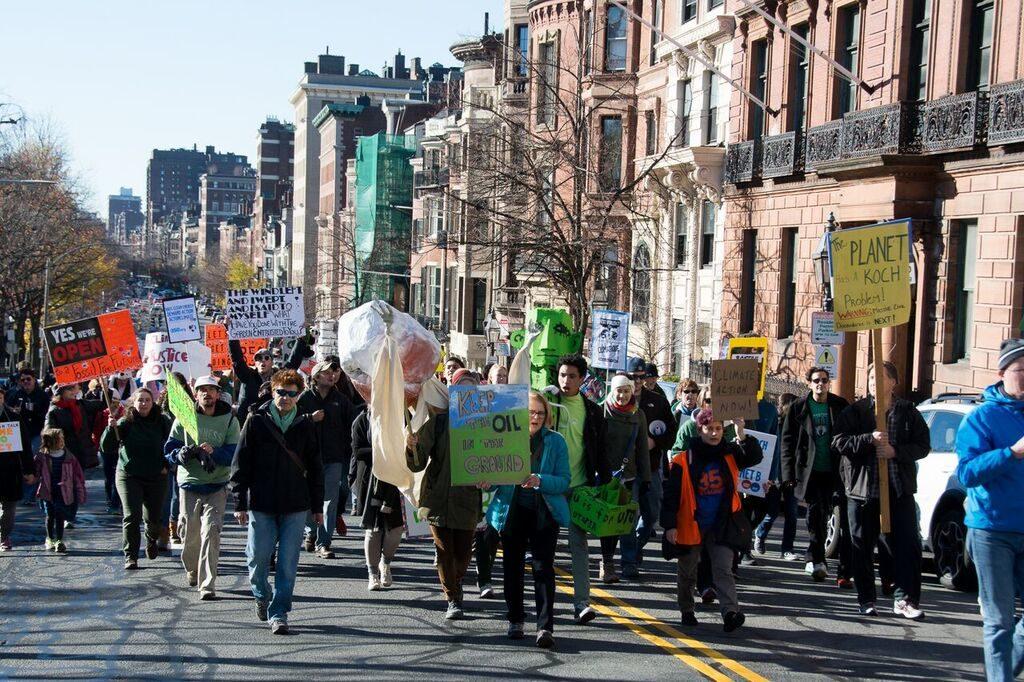By Sam Haas, city editor
Shouting pro-environment slogans, a mass of roughly 250 people marched from Harvard Square to the State House on Sunday, calling on world leaders to halt climate change at an ongoing major policy summit.
The group joined thousands of protesters worldwide in the Global Climate March on the eve of the 2015 Paris Climate Conference, also called COP21, which runs Nov. 30 to Dec. 11. Sunday’s event followed the September 2014 People’s Climate March in New York City, attended by tens of thousands.
“[COP21] is probably the biggest agreement or meeting that we’ve had to date,” Nicole Comfort, co-organizer of the march and a Northeastern University alumna, said. “Unlike any of the other 20 meetings where nothing has really come of it… this is the first chance we really have for coming to a global agreement.”
Delegates from 195 countries are expected to sign a binding pact to keep global warming below what scientists consider a crucial threshold: a 2-degree-Celsius rise in the global average temperature from its 1880 level.
That pledge would mark a necessary but insufficient step in fighting climate change, according to Peter Frumhoff, director of science and policy for the research and policy non-profit Union of Concerned Scientists.
“By any measure, the Paris negations are a major milestone,” Frumhoff said at the rally. “[But] we know that the numbers in these agreements don’t yet add up…. We need to see ratcheted-up commitments to reduce emissions, to support developing countries in making their own clean-energy transition and to ensure that we move forward.”
Staying below the 2-degree line will take significant action. The global average temperature has risen by 0.85 degrees Celsius since 1880, and the amount of pollution already released into the air may be enough to increase it to nearly 2 degrees, according to a 2014 Intergovernmental Panel on Climate Change report.
Despite those potentially-alarming numbers, people should not give up on limiting global warming, according to Frumhoff.
“We must not be deterred by the limits of our imagination today,” Frumhoff said. “Paris is not an endpoint, but a stepping stone.”
Attendees said they wanted to spur leaders to act on any commitments they make in Paris.
“You really need social and political movements to encourage change – that’s why we’re out here today,” Josue Lopez, a doctoral student at the Massachusetts Institute of Technology, said. “Hopefully, in the future, we can even be more aggressive towards combatting climate change.”
The Rev. Fred Small from First Parish in Cambridge cited climate change as a threat to people worldwide.
“The time has long passed to talk about climate change as an environmental issue,” Small said. “Climate is a justice issue. Climate is a survival issue.”
Photo by Brian Bae







![A demonstrator hoists a sign above their head that reads, "We [heart] our international students." Among the posters were some listing international scientists, while other protesters held American flags.](https://huntnewsnu.com/wp-content/uploads/2025/06/image12-1200x800.jpg)







